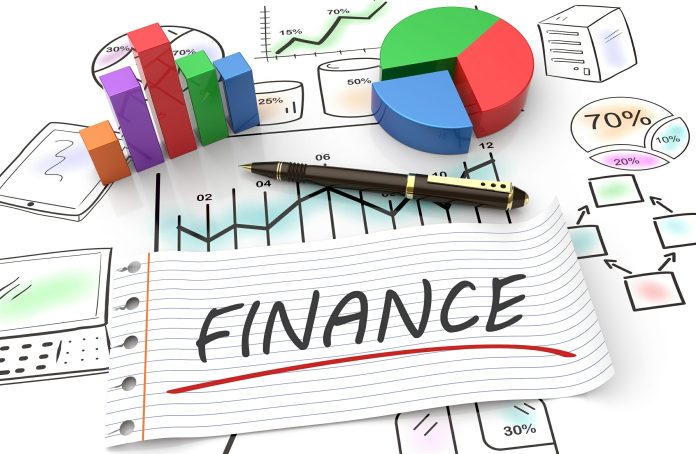5 Realistic Micro-Habits That Could Improve Your Finances ( Number 2 changed my life!)
Small changes can make a big impact on your bank account.
You’re not going to improve your finances overnight. Because unfortunately, the chances of all your money problems disappearing tomorrow morning are basically zero.
That’s something that many people don’t want to hear (my past self included)… but it’s true. If you want to improve your financial situation, you first need to adopt better saving, spending, and investing habits. Here are several that will get you started:
1. Give Up Lazy Spending Habits.
Every Saturday, I look through my bank statement and identify if I’m spending too much money in a certain area. For example, I might spend an extra $100 on groceries without even realizing it.
 Learn More
Learn MoreIdentifying these incidents makes it much easier to prevent them from happening in the future. Plus, keeping track of my spending enables me to adjust my budget and reduce my weekly expenses if they’re unsustainable. Quoting an article published by NerdWallet:
“It’s worth your time to keep tabs on your monthly expenses because of what you’ll uncover. Tracking expenses can be very valuable for finding out what’s really costing you, and what is not as bad as you thought.”
Give up your lazy spending habits. Set aside five or ten minutes per week to review your finances, so you can ensure you’re not spending money without even realizing it. Implementing this strategy could help you stick to your budget more easily, so your spending doesn’t spiral out of control.
2. Automate Your Finances.
My finances are completely automated. I can save money without even thinking about it since everything is done for me. As Peter Lazaroff writes in Forbes:
“Automating your finances helps you achieve specific goals by systematically creating positive long-term habits while fighting the temptation to deviate from your financial plan.”
My monthly income goes directly into my checking account. And on a specific date each month, my bank transfers a fixed percentage of my income directly to a high-interest savings account. I also have daily purchase orders set up for investments and cryptocurrency.
If you want to automate your finances, make sure you always have enough money in your checking account to cover basic necessities. Then, create automated transactions to ensure the rest of your income is sent directly to your saving or investment accounts.
3. Create A Financial Compass.
A financial compass is basically a set of principles that you’ll always follow when it comes to spending, saving, and investing money. For example:
I live below my means.
I only spend money on things/experiences I find meaningful.
I never invest in anything that I don’t understand.
Allow your financial compass to guide your spending, saving, and investment decisions. Doing so will (hopefully) enable you to avoid making financial mistakes that you may later regret.
4. Stand Up Whenever You Fall Over.
There will (probably) be occasions when you spend way more than you initially planned. But that’s okay. The key is to not judge yourself. Quoting an article published by PsychCentral:
“Negative or overly critical self-judgment has the high potential to lead to crippling self-doubt and stagnation. This stagnation has the potential to prevent us from taking action, learning new things, and accepting ourselves as we are.”
Try to accept that some things will inevitably go wrong. Pick yourself up off the ground, and then keep doing whatever you can to make financial progress. That’s all that matters.
5. Prepare For A Worst-Case Scenario.
According to research published by CNBC, “Many Americans describe their situation as financially stable, but economic fragility is persistent across the U.S., especially related to income level, educational attainment, and ethnicity and race. An unexpected expense of $400 can force more than one-third of American adults into a difficult financial situation.”
Try to create a fund that you can use in the event of a catastrophe. After all, it’s challenging to plan for unexpected events such as medical treatment or car maintenance.
Implementing this strategy has given me peace of mind, so it’s much easier to sleep at night. If something unexpected happens, I know that I’ll (probably) be able to afford it since I have a large “worst-case scenario fund.”
I used to suck at managing money. My inability to control my spending often resulted in me feeling stressed and worried about being unable to afford life’s basic necessities.
But since I started implementing these financial habits, I’ve noticed a massive difference in my ability to save, invest, and spend more sustainably. My life is so much better now.
I’m going to leave you with a quote from Dave Ramsey, who perfectly sums up what I’m saying: “You must gain control over your money or the lack of it will forever control you.”
This article is for informational and entertainment purposes only. It should not be considered Financial or Legal Advice. Not all information will be accurate. Consult a financial professional before making any significant financial decisions.
CONTRIBUTED BY Matt Lillywhite
READ ALSO: 15 habits that can make you poor













![The 17 Habits Of Truly Wealthy People That you can easily adopt now [Real powerful stuff]](https://worldfamilydigest.com/wp-content/uploads/2022/02/FA033A84-800B-424D-8DEA-2BB8AD9E91F6-100x70.jpeg)

